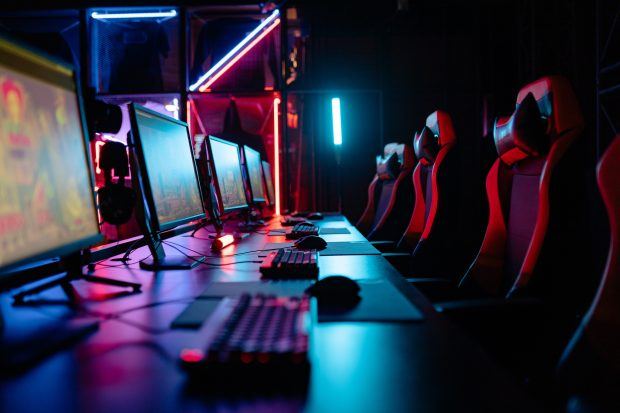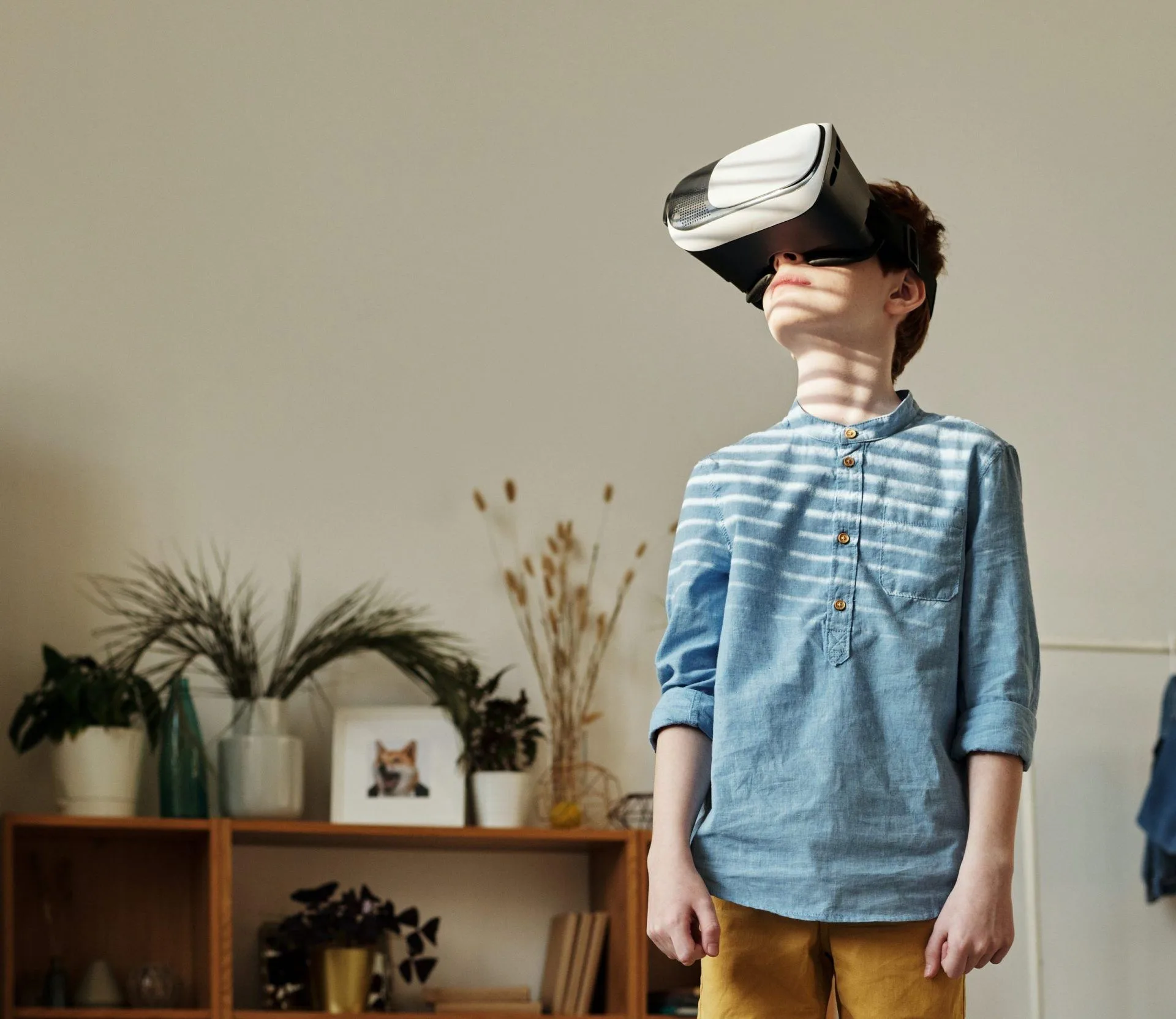The internet has had a significant impact on our lives. One of which is in the area of online gaming. Physical or family games used to involve multiple family members or friends, whether it was an outdoor game or a simple board game. However, with the advent of online gaming, everyone can now choose their preferred mode of entertainment. This has had an impact on the family and individual dynamic. We are all aware of the dark side of gaming, but are there any good things that come from this growing activity?
Gisele Wertheim Aymes spoke to the International Program Director and internationally registered psychotherapist Fiona Yassin. She explained how online gaming impacts the family and how to up weigh the positive aspects.
Online gaming is widespread among adolescents and has typically been viewed as an activity for boys. There have been, however, a growing number of female gamers over the years. Research from the Entertainment Software Association reports that 70% of US families have at least one child who plays video games. Mobile is becoming a critical segment of the game industry.
Yassin adds, “ From the research I have seen, teens make up about 25% of the regular gamers or those gamers who are tipping over to using it a lot. On average, in this research is that time spent online gaming is around 26.6 hours a week, on average. But there’s a growing number of people who are in their 30s to 40s.”
Debating the many aspects of online gaming
The darker side to online gaming
In the US, the NPD Group reports that 59% of U.S. gamers age 2+ play across devices, on dedicated gaming consoles, desktops, laptops, or mobile devices. And 34% of gamers who play exclusively one system do so on a mobile device.
While online gaming can provide quality social interaction, there’s also a darker side. From cyber bullying, malware risks and online predators to hidden costs.
Parents understandably have legitimate concerns when it comes to playing video games online, especially for children.

Photo by Yan Krukov
Managing safety
Yassin points out that the most important thing a parent can do is to establish a dialogue about safe online usage at a young age and build on that as their children get older. She says when they understand the risks and the importance of security, children are more likely to come to you with red flags, alarms, or smaller things that worry them.
Yassin says her work as a psychotherapist supporting families during the COVID-19 pandemic gave her a deeper understanding of the role of online gaming in the household. And while she is not promoting its use, she says she has derived interesting insights that have made her rethink some of the benefits.
Gaming Can Elevate Your Mood
Yassin says gaming is fun and thus can help elevate your mood, which is critical considering the life challenges many households currently face.
The boredom of our daily lives saps our flexibility as well as interest, leaving us bored at the end of the day. Finding online games that energize in a positive way can be very constructive.
Offering a New Way to Understand Culture and Perspectives
Games allow us to immerse ourselves in virtual worlds and yes, while the fantasy aspect must be balanced, we are able to connect to people from around the world. This can be a good way to learn about different perspectives and cultures.
Provides a Safe Space to Express Your Individuality
Sometimes it can be easier to talk about your worries in a virtual context. Gaming may benefit younger people by providing a safe place for them to express themselves.
She adds, “Young people or people being able to experiment with changing their gender online was something that came up for us as a conversation. This sparked interest and we took a deeper dive into this. It revealed that if you’re a person who is dealing with anything that might be seen as controversial in the real world, controversial to you, controversial to your family, then being in this virtual world allowed you to feel more accepted.
It’s often just an exploration, without having to take the step into the real world where you will come up again opinions. And it can help a lot.”
Gender expression
One of the biggest advantages online games have over other forms of entertainment is that they allow players to directly engage with their stories. Many titles achieve this by letting players create their own avatars or offering them a choice from a diverse roster of colorful characters. This is where online gaming is really helping those who are grappling with their gender identity.
“The concept of being non-binary is something that young people under the age of 26 are trying to explore. They are really getting their teeth into it and wanting to debate about whether they should be assigned gender. And with that, a role that is stereotypically attached along with that gender. Do I really want that? Do I want a name that is inherently female?”
This is why it’s a perfect haven for fans and those looking to safely explore their own identities.
Keeping it healthy
Yassin says no matter the pressure on families around their rights to gaming, parents must ensure safe and healthy habits in their children and technology from a young age.
“Healthy relationships online and offline should be open within the family. Be alarmed if any family member is shutting their doors and going away, and doing something in secrecy or isolation. Or you’ll notice other things getting messy. Your kids normally getting C’s is now getting D’s or showing up to school exhausted. Then you really have a problem.”
Keeping communication open
If your teen spends hours gaming, they may struggle to wind down. Ensure that they take regular breaks and go do some physical activity. Encourage them to talk about their gaming so that you are aware of what they are doing online. This will help if they do come across something they are concerned about so they can talk to you.
“Your role as parents doesn’t change. If your child is doing something that is harmful to themselves for 5-10hours a day, you’d step in and stop. This is what we need to remember that our role as parents doesn’t collapse.”
Setting boundaries
As a parent, you can exert a measure of control. If gaming starts affecting family life, if your child starts losing touch with friends or if you notice a behavioral change, then address the issue immediately.
“One thing we advise families is that they all put away their devices at a particular time. I suggest you place these devices in a special cupboard, even a mini safe in the kitchen or wherever your family congregates. There must always be a designated family time together without digital disruption. Remember where my role is as a mom or as a dad. that I don’t have to buckle from the weight of gadgets, phones, and internet access. My values and the values I set are built around my family”. – Fiona Yassin
In closing
While online gambling is here to stay, parents cannot be complacent. Go beyond monitoring and discussions. Even if this means you regularly play video games with your children. Not a gamer? Let your child be your teacher. Gaming with your children ensures an accurate understanding and truly open communication. It also strengthens your bond through shared experiences and the tacit validation of engaging with your children in the forums and activities of their choice.
Watch The Interview
For more on the discussion. Watch the interview below.
View this post on Instagram



![women [longevity live]](https://longevitylive.com/wp-content/uploads/2020/01/photo-of-women-walking-down-the-street-1116984-100x100.jpg)










